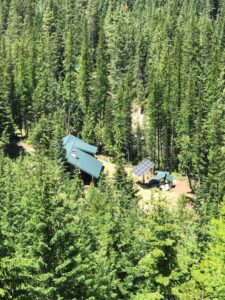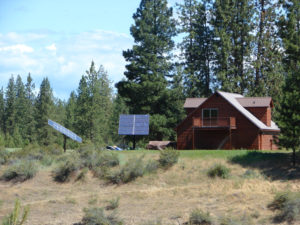No Utility Required: How Off Grid Solar Works
No Utility Required: How Off Grid Solar Works
Off-grid power systems let you live independently from utility power, off the beaten path. It frees you from dependency on the electrical utility, because your power system provides all your power.
These systems are generally larger than grid-tied systems. That’s because to be independent, you’ll need more generating and energy storage capacity than if grid power is available. However, if done properly, living off-the-grid can include all the security, comfort, and convenience modern electricity provides.
Choose Your Power
With an off-the-grid power system, solar panels, a wind turbine, a micro-hydro system – or a combination of these technologies and others – produce all the power you need. Typically a generator is also included to supply power when renewable technologies can’t produce enough electricity to meet demand.
In addition to producing power, you need to store sufficient electricity for overnight and rainy-day use. An experienced off-grid designer will be able to recommmend which chemistry and how much energy storage you need.
Sizing Your Off Grid System

It is somewhat complicated to size an off grid power system. That’s because there’s no utility bill to provide information about your electrical use. That’s why a comprehensive list of your electrical loads is critical. Otherwise you may not have the power you need, when you need it.
Even with complete load information, it takes special expertise to size an off grid system. If you size your renewables to peak use times (typically winter), your system will be unreasonably large and upfront costs could be prohibitive. But if you size your system for low use-high production times (typically summer), you likely won’t have enough power in the winter without running your generator a lot. And that means more wear and tear on your generator, and higher maintenance and fuel costs.
The issues are similar when it comes to your energy storage. Size for the winter, expensive overkill. Size for the summer, you’ll be running out of power and running your generator often during the winter.
The Bottom Line
You need the right balance between how much you spend on equipment, and ongoing costs for recharging with your generator. Finding this balance requires knowledgeable guidance from a reputable off-grid expert.
Interested in Off Grid Systems? View our Off Grid Kits.
